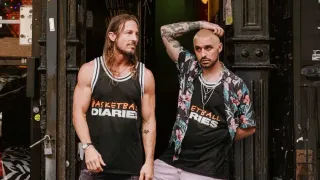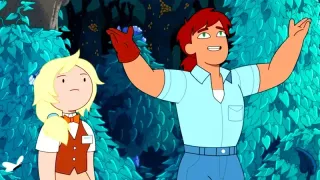
4 hours ago
Making Many Pit Stops in This Drag Race for Marcelo Cravo
Timothy Rawles READ TIME: 15 MIN.
In a post on his Instagram page Marcelo Cravo writes “Life is about becoming a better version of yourself.” Looking at him he’s probably the better version of a lot of us. This sexy model comes from Lisbon, and we’d like to book a ticket there immediately.
When it comes to hot men, Marcelo ticks all the boxes. Tattoos, check. Muscular arms, check. Incredible abs, check. He also exudes a fun personality going by his social media accounts.
But you can see him in action for yourself if you have access to Ru Paul’s Drag Race Brazil. Marcelo was a Pit Crew member on season two. It’s not a thankless job because we appreciate every scene he’s in.
Although we haven’t watched that season, yet, the queens must have loved this big, bulging Latino with a smirk so sexy we’d let him take us to a second location.
Marcelo got to take part in the makeover challenge on Drag Race Brazil this year and we have to say, he looks great in drag too!
He said the experience was, “One of the craziest and most awesome days of life.” His drag mother was Ruby Nox, who —- spoiler alert —- won the season.
We aren’t sure if Marco will be cast for season three, but producers would be stupid if they didn’t bring him back. He’s got the goods, and to quote Mama Ru, we’ve got one thing to say, “Ohhhh Pit Crew!”






